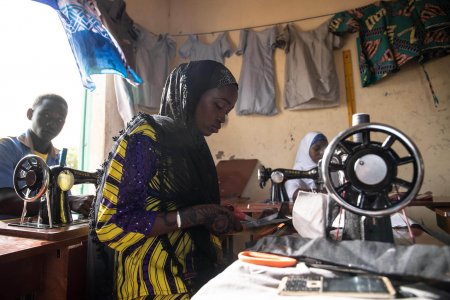
The COVID-19 crisis cost women around the world at least $800 billion in lost income in 2020, equivalent to more than the combined GDP of 98 countries, said Oxfam today.
Globally, women lost more than 64 million jobs last year —a 5 percent loss, compared to 3.9 percent loss for men.
“Economic fallout from the COVID-19 pandemic is having a harsher impact on women, who are disproportionately represented in sectors offering low wages, few benefits and the least secure jobs. Instead of righting that wrong, governments treated women’s jobs as dispensable —and that has come at a cost of at least $800 billion in lost wages for those in formal employment”, said Gabriela Bucher, Executive Director of Oxfam International.
“This conservative estimate doesn’t even include wages lost by the millions of women working in the informal economy —domestic workers, market vendors and garment workers— who have been sent home or whose hours and wages have been drastically cut. COVID-19 has dealt a striking blow to recent gains for women in the workforce.”
While women were losing out, companies like Amazon were thriving. Amazon gained $700 billion in market capitalization in 2020. The $800 billion in income lost by women worldwide also just tops the $721.5 billion that the US government spent in 2020 on the world’s largest defense budget.
Globally, women are overrepresented in low-paid, precarious sectors, such as retail, tourism and food services, that have been hardest hit by the pandemic. Across South Asia, Sub-Saharan Africa and Latin America, the majority of women work in informal employment. Women also make up roughly 70 percent of the world’s health and social care workforce —essential but often poorly paid jobs that put them at greater risk from COVID-19.
Across the globe women have been more likely than men to drop out of the workforce or reduce their hours during the pandemic, largely due to care responsibilities. Even before the virus struck, women and girls put in 12.5 billion hours of unpaid care work each and every day —a contribution to the global economy of at least $10.8 trillion a year, more than three times the size of the global tech industry.
“For women in every country on every continent, along with losing income, unpaid care work has exploded. As care needs have spiked during the pandemic, women —the shock absorbers of our societies— have stepped in to fill the gap, an expectation so often imposed by sexist social norms,” said Bucher.
The effects of these dramatic changes will be unevenly felt for years to come. An additional 47 million women worldwide are expected to fall into extreme poverty, living on less than $1.90 a day in 2021. In the US, 1 in 6 women of color are facing food insecurity because of the pandemic. According to the World Economic Forum, closing the global gender gap has increased by a generation from 99.5 years to 135.6 years due to negative outcomes for women in 2020.
SOURCE: OXFAM